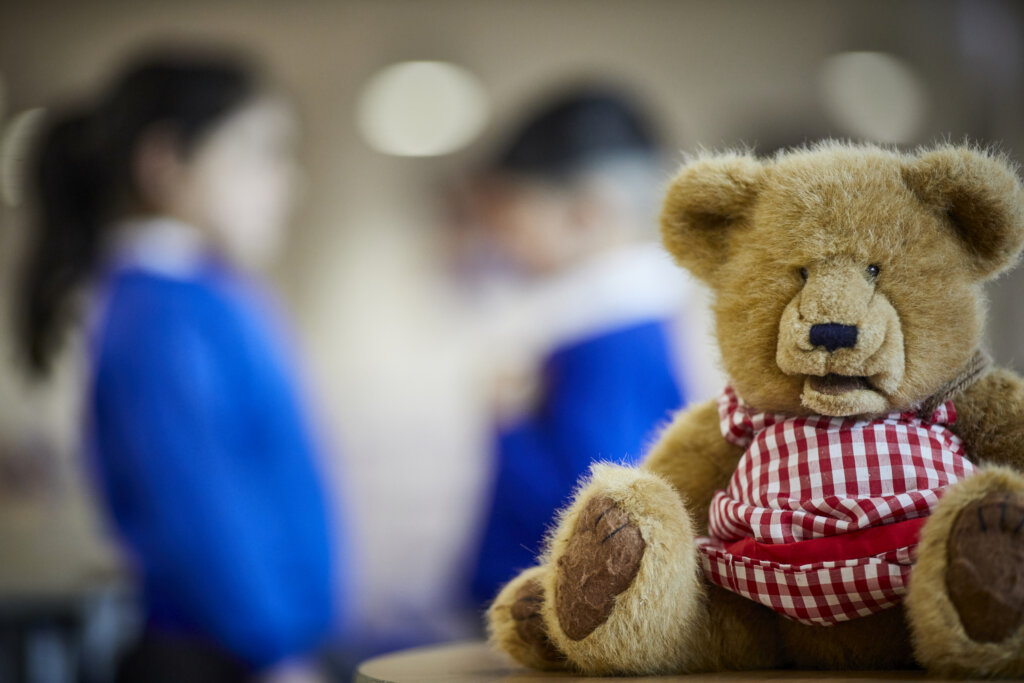No-one can have escaped the recent media frenzy around the teaching of LGBT inclusive education in primary schools. Parents and activists protesting outside school gates; claims that schools have disregarded parental rights and religious beliefs; threats to withdraw children unless equality lessons are suspended; calls from schools and Trade Unions for government intervention and pleas for clarification on the new regulations and guidance around sex, relationships and health education.
Parkfield Community Primary and Anderton Park Primary in Birmingham have borne the brunt of the protests. Events witnessed outside both schools have been quite disturbing. Andrew Moffat, Assistant Headteacher at Parkfield and author of No Outsiders, has revealed the scale of abuse levelled against him confirming that he has even received a death threat. Sarah Hewitt – Clarkson, Headteacher at Anderton Park has spoken publically about the strain of the protests saying that at times her staff have felt “under siege.” At this point a resolution seems unlikely – mediation attempts by former Chief Prosecutor Nazir Afzal having recently failed. Events came to a head at the end of May when a High Court injunction was obtained preventing protests in the immediate vicinity of Anderton Park and preventing protestors from distributing leaflets and making offensive comments about school staff on social media. A further interim injunction was obtained on 10th June and will now remain in place until a full hearing takes place after the end of the summer term in July.
Despite the furore, both leaders in the two Birmingham schools involved have remained steadfast in their commitment to teaching in accordance with the Equality Act 2010. Sarah has spoken on many occasions about the importance of her school’s equality work, emphasising why she will not give in to the protesters. Her sentiments have been echoed by Andrew who was of course awarded an MBE in 2017 in recognition of his services to equality and diversity in education and who was also a 2019 Global Teacher Prize finalist.
So what does the Equality Act say? How does this sit with the provisions in the new regulations about the teaching of relationships education in primary schools? And where do we go from here?
The Equality Act has been on our statute books for almost a decade now and applies to all schools. It provides protection from discrimination to people with protected characteristics including age, race, sex, disability, religion or belief, gender reassignment sexual orientation. There is no hierarchy – all protected characteristics are equal and there is no provision which allows schools or parents to “cherry pick” i.e. to choose which protected characteristics schools should educate about and which they should ignore. Under S149 Equality Act, the Public Sector Equality Duty (PSED) requires schools to have “due regard” to the need to eliminate discrimination and other conduct made unlawful by the Act, to promote equality of opportunity and to foster good relations between people who have protected characteristics and those who do not. It essentially involves tackling prejudice and promoting understanding and is already firmly bedded in the work many schools do.
The Equality Act is central to the Ofsted inspection framework and there is also a significant overlap with many other schools’ duties including the duty to promote community cohesion, the duty to promote British values and the duty under the Education Act 2002 to promote pupils’ spiritual, moral, social and cultural development. There is also a clear connection with new Relationships Education, Relationships and Sex Education and Health Education (England) Regulations 2019, now approved by the House of Lords and set to come into force on 1st September 2020. The updated regulations are long overdue; the last time the government made changes in this area was 20 years ago when the world was very different.
From September 2020 primary schools will be required to teach about positive and safe relationships of all kinds and to teach children about the society in which they are growing up. The government issued guidance to support the regulations and also published FAQs in April this year emphasising that subjects taught under the regulations are designed to foster respect for others and difference, and educate pupils about healthy relationships.
Shortly after the publication of the FAQs and replying to concerns raised by Paul Whiteman, General Secretary NAHT, Damian Hinds wrote a letter setting out his thinking about the new regulations and about the protests. Reinforcing support already publically given by past and present Chief Ofsted inspectors, the Secretary of State for Education called for an end to the protests and pledged support on behalf of the government. He talked about children being “prepared for life in a modern, diverse Britain” referring to some of the duties placed on schools and clarifying the expectations on schools under the Equality Act. In relation to teaching on LGBT relationships, he stated “primary schools are enabled and encouraged to cover LGBT content if they consider it age appropriate to do so” but significantly, stressed that “what is taught and how, is ultimately a decision for the school.” Mr. Hinds made clear that although schools must consult with parents about relationships education, “consultation does not provide a parental veto on curriculum content.” He commented that headteachers “need to be able to respond to what is happening in their school, and in making decisions, taking into account the considerations in the PSED, give consideration to all protected characteristics.”
Support from the government was initially welcomed, but a number of schools and Trade Unions made clear that in their view, it did not go far enough. This was evident when at its annual conference in April, the NEU voted in favour of a motion to lobby the government to strengthen the draft guidance on the regulations with a view to ensuring primary schools have no flexibility and that LGBT education is made compulsory. The NEU’s approach was subsequently endorsed by school leaders at the NAHT’s annual conference in early May. Speaking at the conference, Sarah Hewitt-Clarkson said she believed the parental protests were being exacerbated by the lack of clarity in the government guidance and she called for Mr. Hinds to work with Headteachers in the firing line over the teaching of LBGT inclusive education calling the situation an “unequal mess”. The NAHT unanimously passed a motion calling for the development of a “more robust and legally enforceable policy and support for schools” as they carry out their PSED.
Since the conference, NAHT has continued to campaign for clarity and government support, Paul Whiteman commenting recently ” without meaning to, the government has put school leaders in an extremely difficult position.” On 11th June an NAHT organised Parliamentary Briefing took place and following the Briefing, a number of MPs signed a pledge to “support education in all schools which promotes equality, enabling children to leave school prepared for life in modern Britain, understanding difference and respecting diversity”. The briefing was well attended, speakers and contributors included Sarah Hewitt – Clarkson, Andrew Moffat, Paul Whiteman and MPs, Jess Phillips, Emma Hardy and Wes Streeting. David Issac, Chair of the EHRC also attended and committed his support and Nazir Afzal submitted a video message whch he later published on social media. He stressed his belief that the government could mandate the correct approach in its guidance thereby taking the heat off schools, and he referred to the “shameless lies” of some of the protestors saying schools were already having healthy conversations with parents about age appropriate relationships education. He finished with a powerful statement saying “extremists including politicians need to get out of the way or be pushed out of the way so we can continue to educate our children for this century not the last one.”
In the meantime, in certain areas of the country the protests are continuing and there is evidence that they are escalating. Mr. Hinds has again condemned the protests calling for them to stop, referring to cases where protests are being “hijacked by those with a vested interest and no links to the schools.” Amanda Spielman has reaffirmed her support and Schools’ Minister Nick Gibb has also now publically condemned the protests, confirmed his support for the injunction and revealed his shock at Anne Widdecomb’s recent suggestion that science might provide the answer to homosexuality! Mr. Gibb has also stated that schools will be required to consult on the content of what is taught in relationships education, that it must be age appropriate and that it must take into account religious backgrounds but reinforced the point that ultimately it is for the headteacher and the school to decide on the curriculum.
So where does that leave us now?
It is clear that despite the support publically given by those in government and elsewhere, further formal guidance is required by schools in relation to how they should approach the teaching of LGBT issues within their teaching of relationships education. Trade Unions and schools want clarity to include confirmation that they have no discretion about whether to teach about the existence of LGBT relationships and confirmation that relationships education must be inclusive of all protected characteristics. Until clearer guidance is given, many schools will not feel they have the support necessary to deal with any challenge as the implementation date for the new regulations draws closer.
It is also clear that continued dialogue is essential – parents must be consulted, given time to ask questions, to express opinions and to share concerns and respect must also be shown for religious beliefs. Consultation will be key in relation to how and when relationships education will be delivered in individual schools but it should not be relevant in relation to whether and if it will be delivered.
Ultimately the bottom line is that schools are bound to teach about equality under UK equality law and that means protestors cannot prevent schools from raising awareness and understanding of the existence of LGBT relationships. Schools have obligations under the Equality Act 2010 and in particular under their PSED meaning that however unclear the guidance and regulations may be, schools must continue to teach about equality and diversity across all relevant protected characteristics in accordance with their statutory equality duties.
So we must continue to show our support for leaders like Andrew Moffatt and Sarah Hewitt- Clarkson who champion equality no matter how difficult that path may be. We should support programmes like No Outsiders which is not about sex and is certainly not about promoting homosexuality and is quite simply a resource which ensures a whole school approach to equality and community cohesion. We must also challenge activists who appear to be deliberately exploiting parental concerns to advance homophobic agendas and seriously question the motives of those supporting the protestors such as “celebrities” who have made a living out of controversy and MPs who currently have their own political agendas.
It has never been more important to ensure our children are taught about equality and diversity. Given the rise in far right ideology, global terrorism, hate crime and the clear potential for the radicalisation of our young people we all need to be alive to dangers of prejudice and intolerance and ensure our children are prepared for life in modern Britain. Teaching about equality is also a safeguarding issue. Therefore irrespective of the messages children may be seeing and hearing outside school walls, inside those walls our schools children must continue to be taught about difference so they understand that there are all types of families in this world. In the words of Paul Whiteman “all children have a right to go home to whatever family they have without being forced to question whether their home life is any less loving or proper than their friends or families, just because they look or seem different.”
Whatever challenges lie ahead, important messages around equality must not be diluted.
The above issues will also be discussed in detail at our next equality training event for schools on 27th June 2019 – “No outsiders – equality, diversity and inclusion in schools.” Laura will be joined by special guest speaker Andrew Moffat, Assistant Headteacher at Parkfield School whose No Outsiders programme has been at the centre of the protests. Andrew will explain his school’s No Outsiders ethos and will give advice following his experiences to date. This is a unique training event and a must for all schools seeking guidance around the teaching of relationships education and clarity on their obligations under equality law.
One Education HR can provide School Equality Assessments and equality training for school staff. If you require any further information please contact the school’s HR and People helpline on: 0844 967 1112 or email hrpeople@oneeducation.co.uk
Please get in touch or visit our Human Resources section for more information.
















